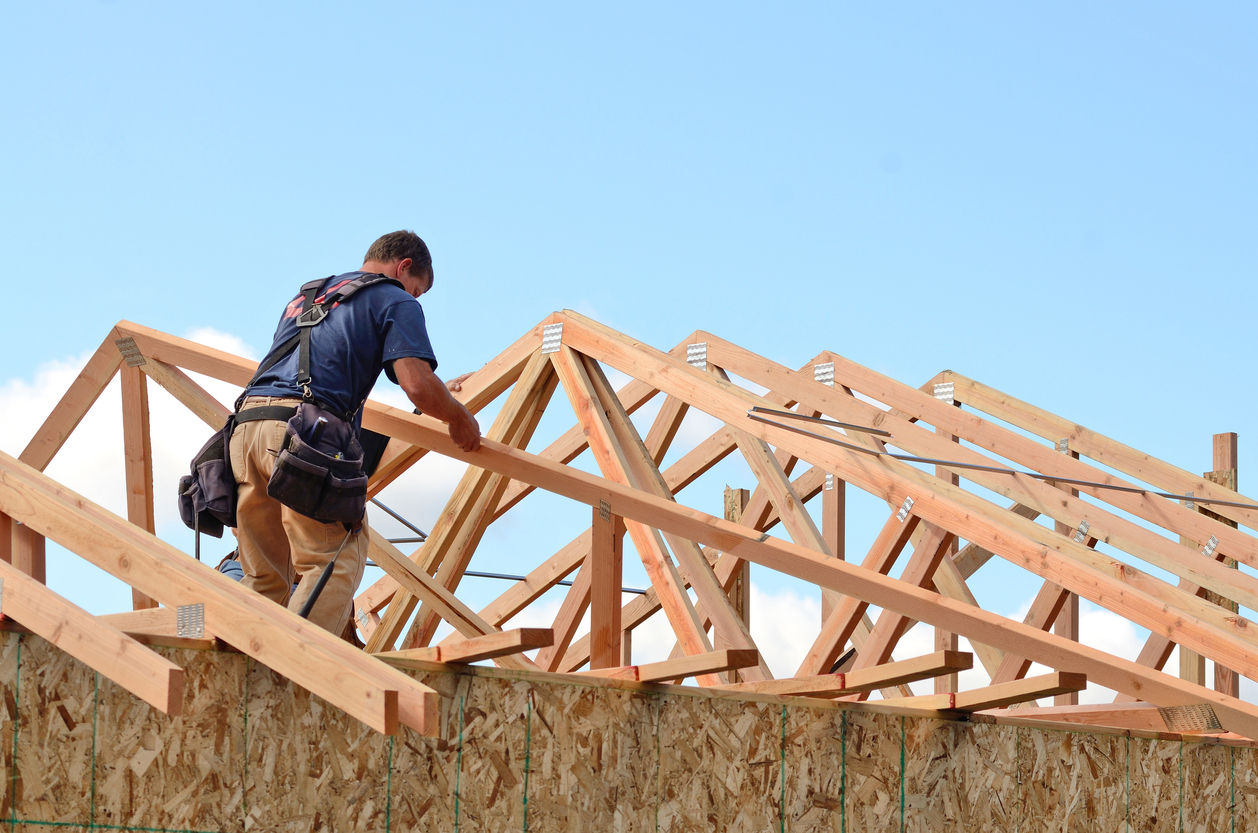How to Make an Offer on a House
An essential part of buying a house is making an offer. This is your bid for the property that the seller will review and either accept, counter, or reject. Depending on your local real estate market, the house you are interested in might receive multiple offers, which means you need to make yours stand out.
This guide will cover everything you need to know on how to make an offer on a house. It will walk you through the steps you need to take before you are ready to bid on a home and the elements included in an offer letter. It will also highlight a few tips to increase your chances that your offer is accepted.
Things to Do Before You Make an Offer
Making an offer is a significant part of the home-buying process, but it is far from the first step in your journey. If you want to be treated as a serious buyer so the seller considers your offer, you need to be prepared before you tour the house. Here are a few preparation steps to take.
Find a Real Estate Agent
Making an offer on a house is significantly easier if you hire a real estate agent. Your Realtor likely uses an existing offer template that they modify from one client to the next. They can walk you through each section of the offer letter and what it means so you have a better understanding of your bid.
Hiring a real estate agent means you do not have to learn how to write an offer letter yourself because your Realtor will do it for you.
To find a real estate agent in your area, turn to FastExpert. We can recommend experienced Realtors in your local market and highlight their specialties. You can hire a real estate agent who frequently works with first-time home buyers or operates in your target neighborhood.
A qualified real estate agent is essential for streamlining the offer process. However, they will also be by your side throughout all of the negotiations, inspections, and appraisals until you close. They should be your professional partner from start to finish.
Get Approved for a Mortgage
Before you start touring homes, interview mortgage brokers and find at least one lender you feel confident working with. They can guide you through the pre-qualification and pre-approval process.
Mortgage pre-qualification is when you self-report your finances to your mortgage lender. They will then estimate how much you can borrow. Pre-approval occurs when your lender looks at all of your financial documents and confirms your borrowing power.
You also need to put together the right financial documents to get pre-approved for a loan. Some people will have more complicated financial statements than others. For example, if you are a salaried employee at a single company, you can send your lender your tax returns and pay stubs. However, if you are self-employed or a contractor, you will also need to send over your business documents.
Pre-approval is an important part of making an offer on a house because it tells the seller that you are a qualified buyer who is capable of securing financing. Sellers don’t want to accept offers from buyers who are unlikely to secure a mortgage loan because then they need to remarket the property.
A pre-approval letter from your lender highlights your borrowing ability and shows that you are likely to meet the closing deadline.
See What You Qualify For
The loan pre-approval process isn’t just for the seller. It also helps you understand your buying power so you know what kind of home you can bid on. Your lender will look at your gross monthly income and calculate your debt-to-income ratio to understand your maximum monthly mortgage payment. They will evaluate your down payment and use this information to identify your home budget.
If the maximum that your lender feels comfortable giving you is $300,000 and you have a down payment of $50,000, then your home price limit should be $350,000. When you start touring homes, you can limit your search to properties at or below this asking price.
Knowing your limit can prevent you from falling in love with a house you cannot afford or negotiating with sellers until you agree to a higher price than you can get a loan for.
How to Make an Offer on a House
Once you have a real estate agent, a mortgage lender, and a budget, you can move forward with the house-hunting process. Start touring homes in your ideal neighborhoods until you find a listing that you love.
If you feel confident that a home you toured is an excellent fit for you and your family, you can move forward with the bidding process. Here are the steps you need if you want to make an offer on a house.
Step 1: Decide How Much to Offer
The first step is to identify how much you are willing to pay for the property. Your offer will depend on the asking price, the market, and your confidence that your bid will be accepted.
- If you are making an offer on a house in a seller’s market, the homeowner might receive multiple bids for the property. This means you will need to make an offer close to the asking price.
- If you are making an offer on a house in a buyer’s market, the homeowner might be eager for any bid. This means you could get away with a lower offer.
Your real estate agent will try to get as much information as possible about the property and the seller to help you submit a reasonable offer. They will ask if the homeowner is eager to sell, which indicates that you might be able to make a lower offer. If your agent discovers that other people are making offers on the home, then your bid will need to be more competitive to stand out.
If you make a lower offer than the asking price, explain to your real estate agent why you want that amount. For example, you might make a lower bid if the house needs significant repairs or renovations. Your agent will share information with the listing agent during the negotiation process.
When you make a bid, avoid lowballing the homeowner. This is an offer that is 10% below the asking price or lower. A lowball offer could result in an outright rejection of your bid. Instead, make a low offer that is still reasonable so the seller can counter with another price. These negotiations will continue until you reach a deal.
Step 2: Decide on Contingencies
Agreeing on an asking price is only the first step when making an offer on a house. Both parties can also include contingencies that you or the seller have to meet before the closing date.
In a seller’s market, a homeowner might look for bids that waive various contingencies and increase the chances of a speedy sale. However, the seller might need to agree to more contingencies in a buyer’s market.
Here are a few common contingencies you might include:
- Home inspection: The seller needs to agree to let you inspect the house to make sure it is in good condition before you buy it. Most lenders require home inspection documents to approve loans. Your offer will also include a home inspection window, usually a week, to complete this process.
- Appraisal: A home appraiser estimates the value of the house and confirms that it aligns with the agreed selling price. Many lenders also require home appraisals.
- Financing: A financing contingency will allow you to back out of the home sale if you cannot secure a mortgage loan.
- Home sale: If you are currently selling your house before buying another one, you may include a home sale contingency in the offer. This means you cannot purchase this house until you sell your other one. If you cannot sell your current home, this contingency will allow you to back out of the deal.
- Homeowners Association (HOA): This contingency allows the buyer to read any HOA documents before the deal closes. if the HOA seems unreasonable, the buyer can back out of the deal.
Buyers can include other contingencies related to the home sale. However, the more contingencies the seller needs to agree to, the less likely the offer will be accepted.
Step 3: Decide on How Much Earnest Money to Offer
The earnest money deposit shows that you are a serious buyer by submitting cash to the seller. It is a good faith deposit that the title company usually holds on to your earnest money in an escrow account until the closing date.
The amount of earnest money you include in your offer reflects how serious you are about buying the house. If a buyer submits a low earnest money deposit, they will have an easier time walking away from the deal and potentially losing that money. A high earnest money deposit reflects a buyer’s eagerness to move forward with the deal.
The typical earnest money deposit is between 1% to 5% of the home’s value. If you are buying a $400,000 house, then you will need to put down between $4,000 to $20,000 in earnest money.
The earnest money is a deposit, which means it is part of the home price and not submitted in addition to your bid. If you put down $10,000 in earnest money on a $400,000 house, then you will pay the remaining $390,000 at closing.
Step 4: Write a Purchase Offer
Your real estate agent can walk you through making an offer on a house, submitting earnest money, and including any necessary contingencies. They will use this information to write a bid and submit it to the homeowner.
Most agents follow a standard offer template that they use for multiple clients. This allows them to quickly draft offers so they can submit your bid to the homeowner. They will ask you to review the offer before they submit it to the listing agent. You can request any changes or highlight any accuracies in the offer that your Realtor might have missed.
It is important to understand each section of the offer on a house so you know what your bid contains. This will allow you to make adjustments if the homeowner counters. It will also help you fulfill your requirements as a buyer if the homeowner accepts your offer.
For example, many purchase agreements have limits for when earnest money needs to be submitted. If you don’t drop off the deposit in the time frame, you may forfeit the house.
Step 5: Negotiate the Price and Terms of the Sale
Once your real estate agent has drafted your bid, they will submit the offer. Both your agent and the seller’s agent will help their respective parties negotiate the purchase price until they reach an agreement.
Three things could happen after you make an offer on a house: the seller could accept, reject, or counter your offer. Here is what happens in each situation.
- The seller accepts your offer: This is the best-case scenario for buyers. If the seller accepts, you can submit the earnest money to the title company and move forward with the purchase process. This includes starting the underwriting process with your lender and completing various contingencies like the home inspection and appraisal.
- The seller counters your offer: This is still good news. It doesn’t mean the seller rejected your offer but rather wants to counter it with different terms. The seller might propose a higher asking price than the one you submitted or request a change of closing date. A counteroffer means the seller is open to the negotiation process and you can either accept their bid or make another offer with different terms.
- The seller rejects your offer: A rejection without a counteroffer means the seller is not interested. In a competitive market, they might have another offer they can choose instead. Alternatively, you might have made a bad offer that the seller isn’t interested in.
Throughout this process, your agent will try to gather as much information as possible. If the seller counters your offer, they will try to help you make it more competitive so it is accepted next time.
If the offer is outright rejected, you can decide whether you want to submit another offer or move on to a different property.
Tips to Make Your Offer Stand Out
Both buyers and sellers tend to focus on the purchase price in an offer. However, this is a mistake. There are several factors in a competitive bid that make one purchase agreement stand above the rest. Here are a few ways to get your bid noticed.
- Understand the needs of the seller. Ask your agent to learn about the homeowner so you can tailor the offer to their needs. For example, you could have a tight closing window if they’re in a hurry or extend the closing date until the end of the school year if the owner has kids.
- Offer short inspection windows. The inspection window is an uncertain time for both buyers and sellers. Offer a seven-day home inspection window or shorter to prove that you are serious about getting the property inspected for any necessary repairs.
- Limit your contingencies. Sellers want to mitigate risk throughout the purchase process. the fewer contingencies you include, the more likely they are to accept your bid. For example, if a seller has to wait for your house to sell before they can sell theirs, they might not be willing to take on that risk.
- Include an offer letter. The practice of including a letter introducing yourself and explaining why you want the home is becoming increasingly common. This is a personal touch that adds an emotional aspect to your offer. If a seller has to choose between two similar offers, they might pick the bid that includes this warm element.
- Respond quickly to counters. If the homeowner provides a counteroffer, work with your agent to either accept or counter their bid. If your offer process takes multiple days, the homeowner might accept another bid instead.
Hire an Experienced Realtor to Navigate Your Local Market
Making an offer on a house is an exciting and stressful step in the purchase process. Buyers are often hopeful about having their offers accepted and anxious that the seller might choose another bid instead.
An experienced Realtor can help you write a compelling offer that is more likely to get noticed if the seller receives multiple bids. Sometimes a homeowner receives two very similar offers where small elements like the closing date or earnest money deposit make them accept one over the other.
To find experienced real estate agents in your area, turn to FastExpert. Hire a Realtor who helps you find a house you can comfortably afford. This agent can hide you through the bidding process so you make a competitive offer that is financially fair for both parties. Try FastExpert today and find a real estate professional you can trust.





